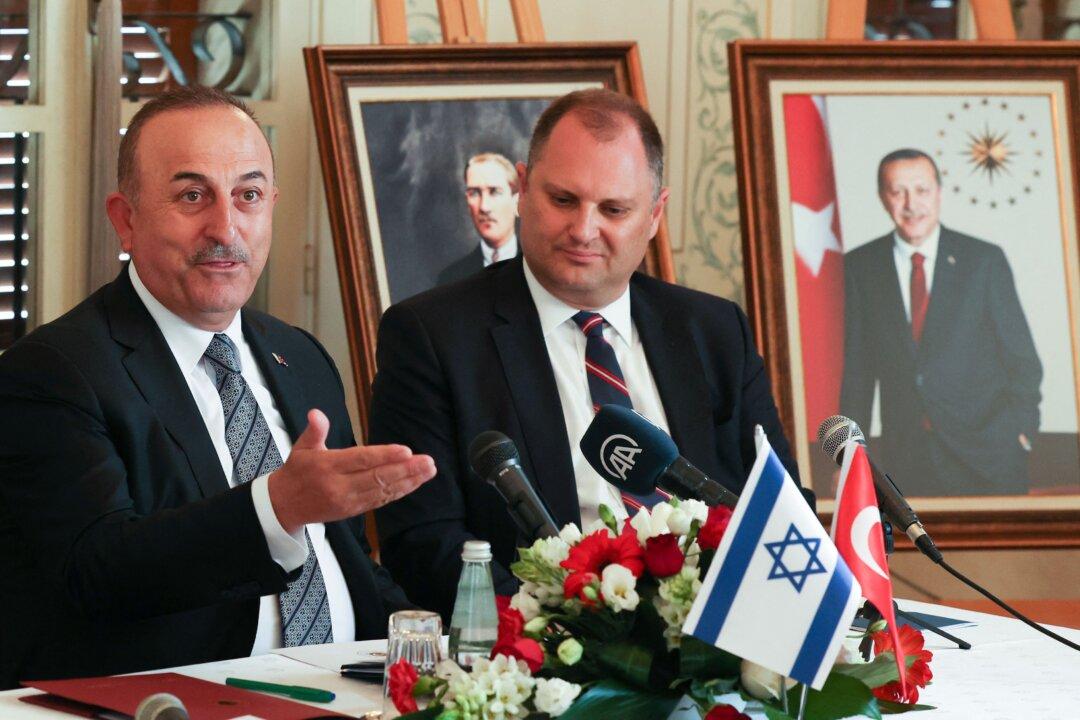ANKARA, Turkey—Turkish Foreign Minister Mevlut Cavusoglu visited Israel last week, becoming the first Turkish foreign minister to do so in 15 years. The trip is a sign of budding rapprochement between the two countries whose diplomatic relations have remained in limbo since 2018.
Experts attribute the move to Turkey’s desire to repair frayed relations with influential states in the region and position itself as an energy-transit hub.





